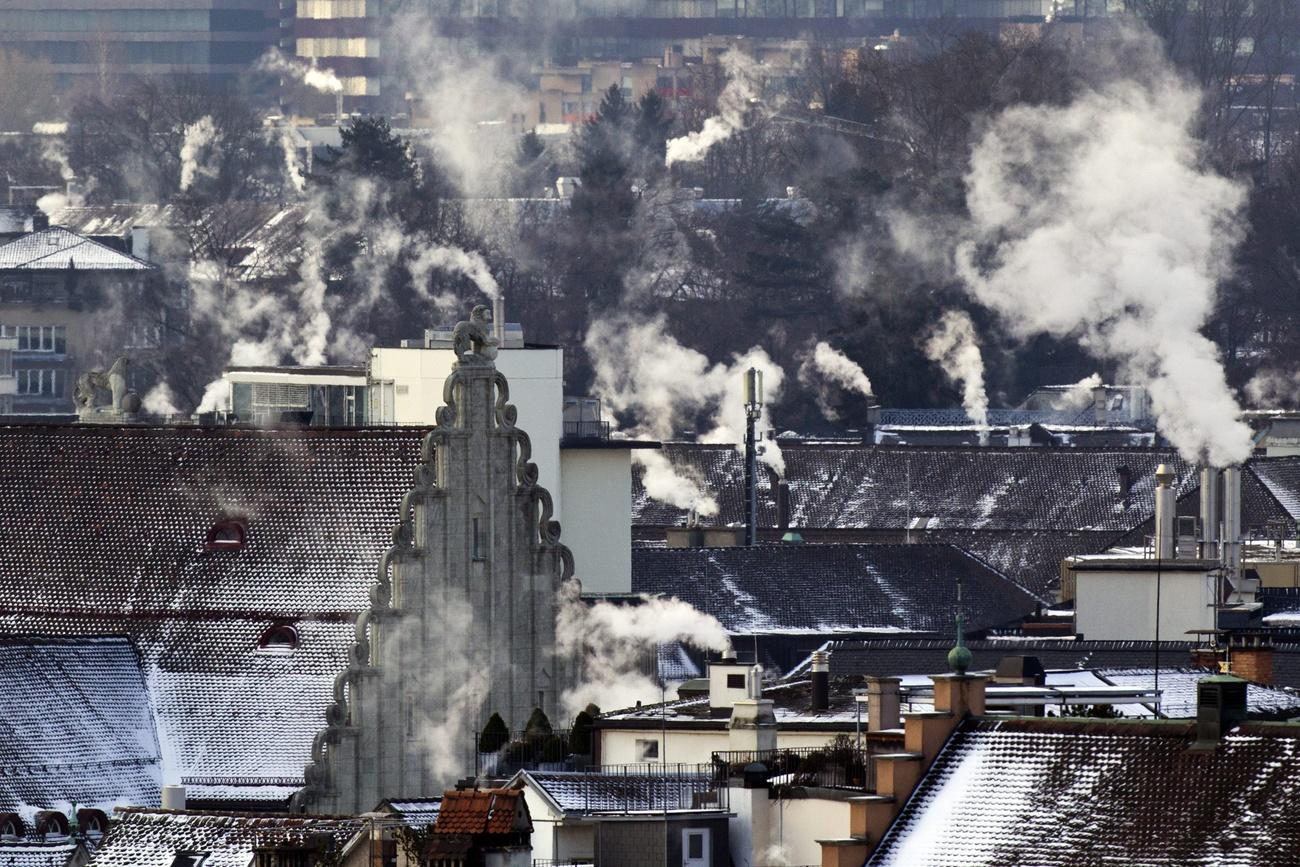If everyone lived like the Swiss, we would need the natural resources of three planets

To highlight how quickly humans are depleting Earth, environmental activists predict when countries will have used up their annual share of natural resources. For Switzerland, that day is May 8 this year, again far ahead of the global average.
The overall Earth Overshoot Day, as calculated by the Global Footprint NetworkExternal link, is expected to fall at the end of July or early August. In the 1970s, it came in November or December.
“Due to its comparatively high consumption level, Switzerland is one of the countries with disproportionately high environmental footprints per capita,” wrote Karine Siegwart, deputy director of the Swiss Federal Office for the Environment, in a recent studyExternal link.
More than half of commuters in Switzerland drive to work rather than taking public transportation, cycling or walking. The average Swiss flies about 9,000km per year, twice as much as 20 years ago.
Indoors, Switzerland uses more heating oil than other European countries and is above average when it comes to heat loss due to poor insulation of buildings. Per capita, Swiss residents throw away more rubbish than most other Europeans.
“Many Swiss people have the impression that we are especially environmentally friendly,” said Thomas Vellacott, managing director of WWF SwitzerlandExternal link. “Unfortunately, the opposite is true.”
The consequences will be costly, he warned. “Today and in the longer term, this causes ever greater financial, social and ecological costs that must be borne by the general public.”
Ahead of the United States, behind China
According to the Global Footprint Network, Switzerland ranks 41st on the list of national overshoot days. Qatar ranks first, (February 11), Luxembourg (February 16) second and United Arab Emirates (March 7) third.
Also ahead of Switzerland are the United States (March 14), Canada (March 18), Austria (April 8), Singapore (April 11), Russia (April 25) and Germany (May 3).
However, other major developing and developed countries are behind Switzerland: This includes Japan (May 12), France and Italy (May 14), Britain (May 16), Portugal (May 25), Spain (May 27) and China (June 13).
At the far end of the spectrum are Cuba (December 1), Morocco (December 16) and Kyrgyzstan (December 26).
Coronavirus impact still unclear
In 2018 and 2019, Swiss Overshoot Day fell on May 7. Prior to that, it was April 27 (2017), March 22 (2016) and April 13 (2015). “Sometimes the Swiss Overshoot Day is a few days earlier, sometimes a few days later. This year it has to do with the fact that we have a leap year,” WWF Switzerland spokeswoman Corina Gyssler said.
She also noted that fluctuations could result from improved data or calculation updates.
While Switzerland’s Overshoot Day has been relatively stable, the global day has gradually been edging closer. It will announce the date of Earth Overshoot Day 2020 early next month.
This year’s dates for individual countries are based on data from last year, and do not take the coronavirus pandemic into account, its authors say.
“It is still too early to tell as data on these significant changes are limited,” notes Global Footprint Network on its website.
How has your footprint changed in recent years? Let us know in the comments or contact the author of this article on Twitter: @SMisickaExternal link

More
Can coronavirus help the environment?

In compliance with the JTI standards
More: SWI swissinfo.ch certified by the Journalism Trust Initiative














You can find an overview of ongoing debates with our journalists here . Please join us!
If you want to start a conversation about a topic raised in this article or want to report factual errors, email us at english@swissinfo.ch.